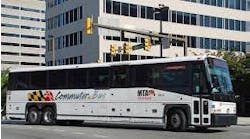FHWA awards $21.6 million Congestion Relief Grant to Metropolitan Area Planning Council for new Bluebikes stations and shuttle routes
The Metropolitan Area Planning Council (MAPC) has received a $21.6 million Congestion Relief Grant from the Federal Highway Administration (FHWA) to help relieve congestion across Greater Boston by funding new Bluebikes stations and adding several new shuttle routes to supplement Massachusetts Bay Transportation Authority service throughout the city.
The grant will fund research to help reduce driving and encourage transit use and will help launch a new mobile app that will allow transit riders to book trips across the system in one place.
“This grant will provide more options for people to get around without relying on a car and will make a dent in Boston’s status as one of the most congested cities,” said Eric Bourassa, director of transportation, MAPC. “We are also excited to see these funds advance research and technology solutions that will improve non-auto travel options and encourage people to use other modes of transportation.”
The new shuttle network will expand public transit in key Boston neighborhoods, including the Seaport, Charlestown and Allston-Brighton neighborhoods. The Bluebikes expansion will add nearly 400 new bikes to the system, a quarter of them electric bikes (e-bikes), as well as new stations throughout the system. MAPC says approximately half of the new stations will be electrified, allowing e-bikes to recharge while docked, extending their range and reducing their dependency on manual battery swapping. Some existing stations will also be relocated from on-street to off-street sites to enable them to operate year-round.
The first phase of the work will be to plan specific station locations in existing Bluebikes communities, which includes Arlington, Boston, Brookline, Cambridge, Chelsea, Everett, Malden, Medford, Newton, Revere, Somerville, Watertown and Salem.
“Easing traffic congestion is only possible if we offer accessible alternatives to cars and this funding makes it possible for us to do so,” said Boston Mayor Michelle Wu. “I want to thank our partners at MAPC for all they have done to advance this project and make our roads better for all residents.”
“The Congestion Relief Program funding is a huge boost in helping to build the transportation system we have dreamed of, one that is seamless, gives people more travel options and which launches technology to help people navigate as they take trips,” said Massachusetts Department of Transportation Secretary and CEO Monica Tibbits-Nutt. “The funding turns vision into reality, implementing steps to reduce pollution, decrease congestion and support people who don’t have a car.”



